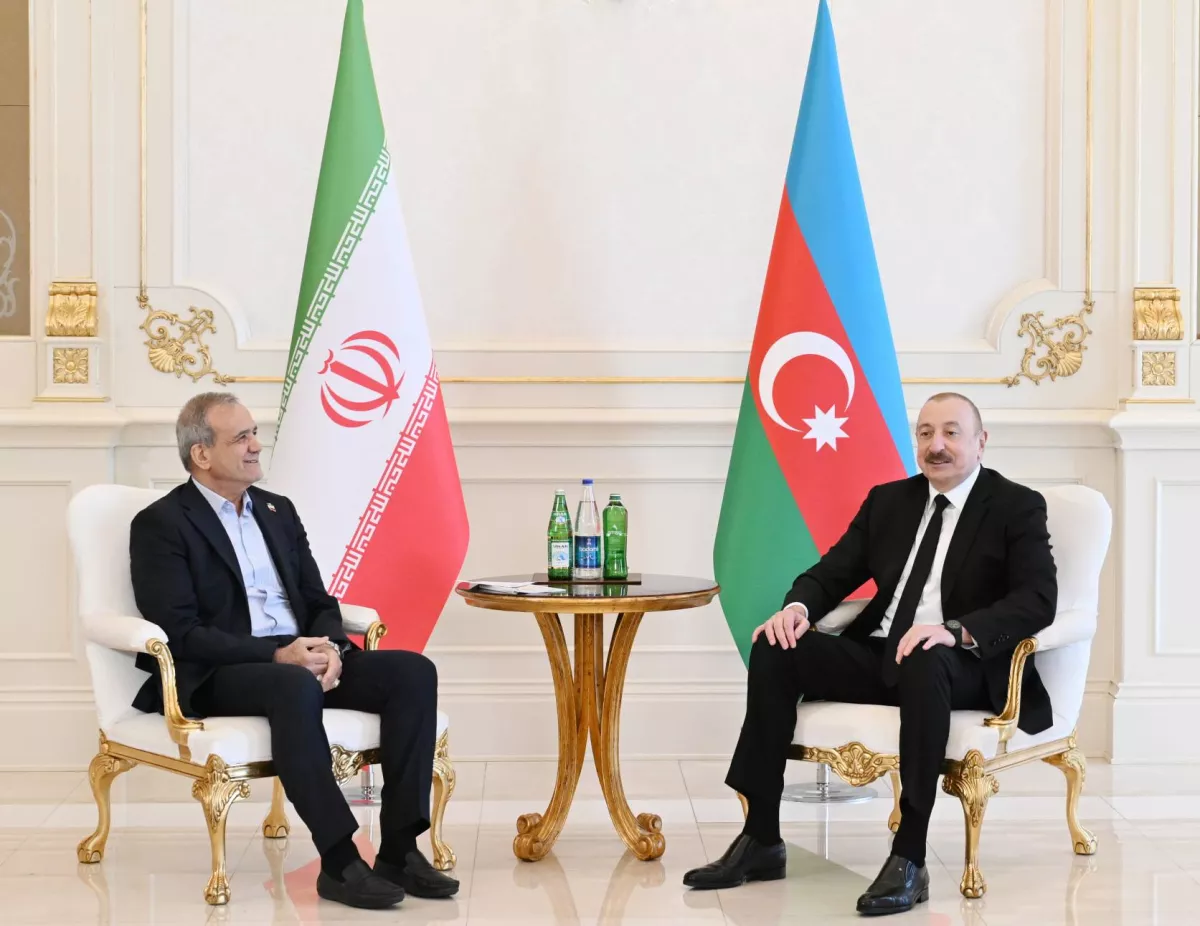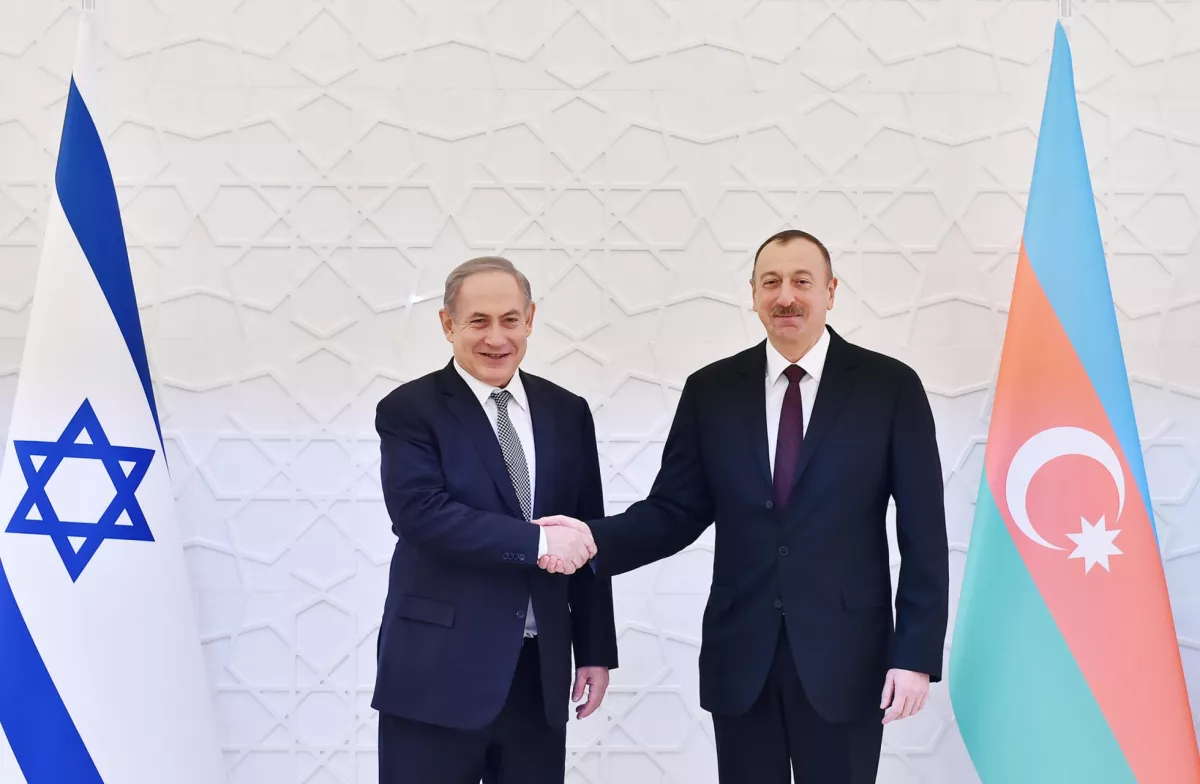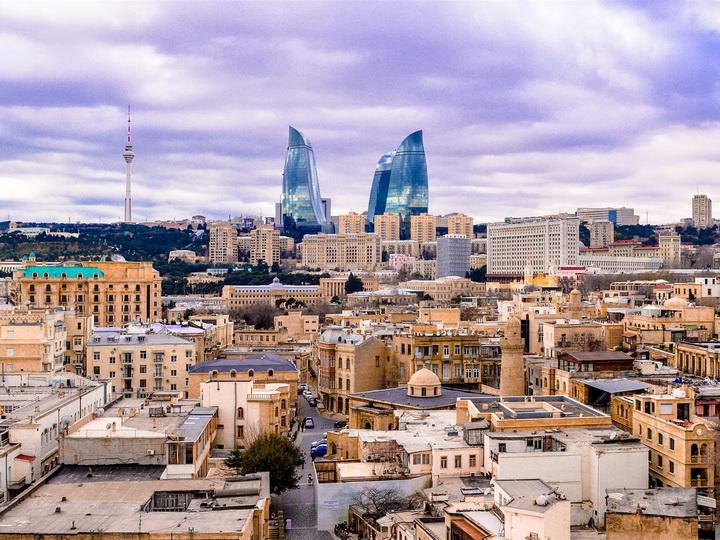Pragmatism without ideology Azerbaijani formula of diplomacy
A telephone conversation took place on June 4 between the Presidents of Azerbaijan and Iran, Ilham Aliyev and Masoud Pezeshkian. The press service of the President of Azerbaijan reported the exchange.
During the call, the presidents exchanged mutual congratulations on the occasion of the sacred holiday of Eid al-Adha and wished prosperity, progress, and well-being to the brotherly and friendly peoples of Azerbaijan and Iran.
It was emphasised that the development of Azerbaijani-Iranian relations has entered a turning point, and hope was expressed that, through joint efforts, ties between the two countries in various fields would continue to develop dynamically.

Just recently, Israeli Prime Minister Benjamin Netanyahu also sent a congratulatory message to President Ilham Aliyev on the occasion of May 28 – Independence Day. In his letter, the Israeli Prime Minister noted that the relations between Israel and Azerbaijan have deep historical roots and have been further strengthened by shared values and strong bonds of friendship between the two peoples.

These two examples serve as clear evidence that Azerbaijan's foreign policy is a model of the fine art of balancing — a meticulously calibrated strategy grounded in pragmatism and national interest. One of the most successful manifestations of this approach is Baku’s ability to simultaneously maintain constructive, and even warm, relations with two antagonists in the Middle East — Iran and Israel.
It is well known that the Republic of Azerbaijan is situated in an extremely complex region, where the interests of global and regional powers intersect with historical, ethnic, and religious contradictions.
To the south, Azerbaijan borders the Islamic Republic of Iran, with which it shares centuries-old cultural, religious, and ethnic ties. More than 20 million ethnic Azerbaijanis live in Iran. At the same time, Azerbaijan’s active development of a strategic partnership with Israel — including close cooperation in the field of security — causes concern in Tehran. Nevertheless, despite periodic spikes in tension, Baku strives to maintain working relations with Iran.
Issues such as cross-border trade, energy, water resources, and transport corridors (including the North–South corridor) remain key items on the bilateral agenda. Azerbaijan continues to demonstrate restraint in response to the occasional rhetoric from Iranian radicals, consistently preferring diplomatic channels even during periods of sharp escalation.
Azerbaijan’s ties with Israel are primarily grounded in pragmatism. Israel is one of the key suppliers of modern weaponry and technology to the Azerbaijani Armed Forces. Baku and Tel Aviv cooperate across a broad range of areas — from agriculture to energy.
Thus, it can be confidently asserted that the core secret behind Azerbaijan’s diplomatic success lies in its clear understanding of national interests and its deliberate rejection of ideological approaches.
Baku does not seek to play the role of mediator or ideological ally to any party involved in regional conflicts. Instead, Azerbaijan acts as a pragmatic player focused on security, economic development, and sovereignty. Its multi-vector strategy enables the country to benefit from cooperation with diverse actors while avoiding direct confrontation with any of them.

Azerbaijan’s experience demonstrates that in today’s world, even relatively small countries can pursue an independent foreign policy — provided they possess internal stability, diplomatic flexibility, and clearly defined priorities. Baku’s ability to maintain relations with both Iran and Israel is not merely a diplomatic success; it is a vivid example of how, even amidst intense regional competition, it is possible to strike a balance without compromising sovereignty.
Moreover, Azerbaijan is building pragmatic relations not only with the United States and the European Union, but also with China and Russia. It is also expanding its engagement with Africa, as evidenced by the highly important and notably successful visit of Foreign Minister Jeyhun Bayramov to Kenya.
And what about Armenia’s foreign policy trajectory — aside from the latest opening of yet another French "intelligence outpost" on its territory? After all, this is a country that seeks to present itself to the international community as some sort of "dove of peace." It would be interesting, indeed, to see what actual successes it has achieved in this area.
Unfortunately, the reality is rather bleak: Yerevan currently has little time or capacity for foreign policy. The political focus is now absorbed by a bitter power struggle between Prime Minister Nikol Pashinyan and the Armenian Apostolic Church, one that has even descended into the use of vulgar language. Meanwhile, Armenia’s economic indicators continue their steady decline, and official Yerevan has managed to alienate many of its traditional allies — all without securing meaningful security guarantees from its new Western patrons. But these pressing issues remain somewhere in the background, overshadowed by palace intrigues.
The Armenian elite — much like society at large — seems far more preoccupied with bedroom politics than with matters of statecraft or diplomacy.








